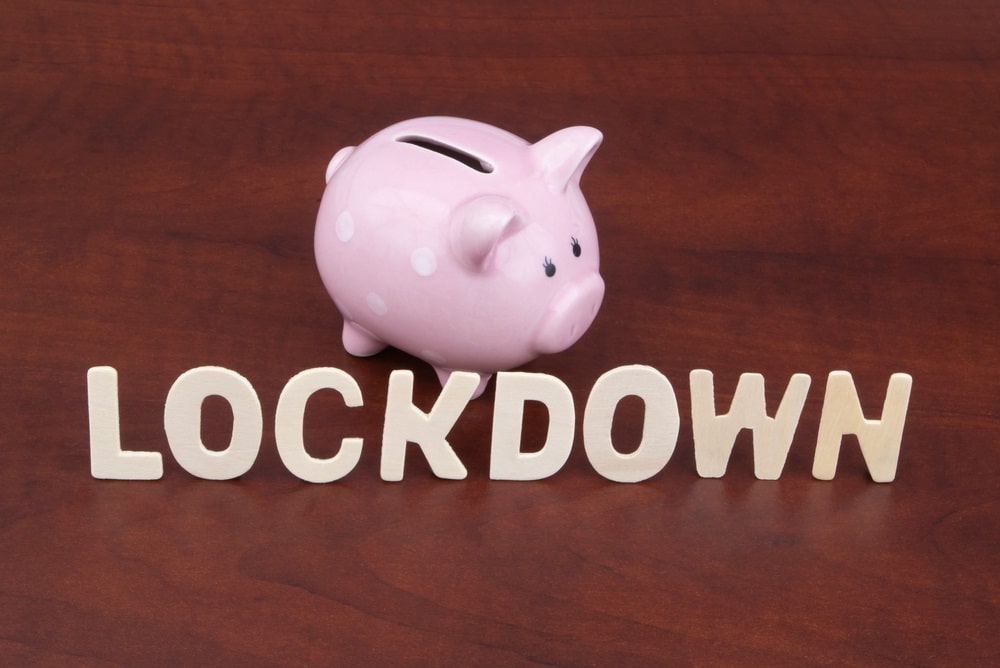Jasmine Birtles
Your money-making expert. Financial journalist, TV and radio personality.


Interest rates rise. The Bank of England has announced raised interest rates for the third time in four months in an attempt to calm the rising cost of living. This is however to be their highest level since March 2020, when Covid lockdowns began.
The rise from 0.5-0.75 is however not suspected to be the end to it as further rate rises lie around the corner. It looks pretty evident that central banks are intent on several further rate hikes as we move through 2022, to help stave off the very real threat of sustained inflation.
Money Magpie’s Jasmine Birtles says, “We knew that the Bank of England would raise rates by a tiny margin today. Frankly it’s not likely to make a huge difference in anything we do – particularly savings where banks and building societies had already factored in a rate rise and where rises are sluggish at best anyway. However, it is a step in the right direction. We can expect many more rate rises to come which will make life harder and harder for borrowers, particularly those on a variable rate mortgage.”
Laith Khalaf, head of investment at AJ Bell says; “UK consumers now face an annus horribilis, as rising borrowing costs will be compounded by higher food and energy bills, and tax rises to boot. Interest rates will mean savers getting a bit more return on cash held in the bank, but elevated inflation means they will actually be worse off. The Bank of England is honest in stating that it has limited ability to deflect the economic shock of higher food and energy prices, but that just means UK households are going to have to grin and bear it.”

Commenting on today’s announcement from the Bank of England, Sarah Pennells, Consumer Finance Specialist at Royal London says: “The third rise in interest rates in as many months is likely to worry people as they face sharp rises in household bills and the general cost of living.
“Wage growth at 3.8% is failing to keep up with inflation, currently sitting at 5.5%, but predicted to rise further, leading to ever-increasing demands on people’s take-home pay. It’s a situation that’s contributing to growing anxiety with UK adults about the cost of living and how they’ll be able to cover price increases this year.”
Jasmine Birtles adds that; “This rise is too little, too late. In any normal economic cycle, interest rates should have been rising some months ago. In my opinion we should already have interest rates at around 7-8% to make any dent in inflation.
“The problem is that we are in a stagflationary environment where a stagnant economy, together with rampant inflation, makes it very difficult for the Bank of England to do the right thing. Higher interest rates would (and will) dampen economic growth, but without them the cost of living will soar beyond people’s ability to pay their bills.”
Dr Tony Syme, macroeconomic expert from the University of Salford Business School however questions the long-term thinking of the Bank at this point by suggesting that a decline in wages will impact people’s spending anyway.
Dr Syme said: “As the Bank of England say, ‘higher interest rates makes borrowing more expensive and it encourages saving. That reduces how much people spend overall. And this will help to keep inflation down’. But the decline in real wages and increasing pressure on household budgets is already reducing how much people spend anyway.”
So what can the bank’s really do to curb this trend? Dr Syme feels that what the bank is doing won’t actually work.
He says; “There is an inherent flaw within this policy. As the Bank of England say themselves that higher interest rates don’t work straight away. They take time to take full effect. So when we use them, we always look at what will happen in the economy in one or two years’ time, not just what’s happening now. And yet the same statement also says that “most of the current causes of the current high rate of inflation won’t last” and “we expect it [inflation] to be much closer to our 2% target in two years’ time”.

The reality is all of this rampant inflation could have been avoided. “As a lockdown sceptic from the start I feel an ‘I told you so’ moment here,” says Birtles. “Lockdown has been devastating for our economy and for all economies around the world that allowed themselves to fall under the spell of covid fanaticism.
“Study after study now has shown that lockdowns did no good for infections but have done terrible things to the health, mental stability and finances of the citizens of each locked-down country or region. The inflation we are suffering at the moment is just the start.
Sadly there is more to come as all of the quantitative easing that was indulged in over the last two years has wreaked havoc with prices. The Russia/Ukraine crisis is just the cherry on top of an already nasty-tasting sundae.”
All we can do now is wait with bated breath for the Spring Statement and it will be interesting to see if Rishi Sunak will proffer any support for household budgets to counter this constant inflation.
